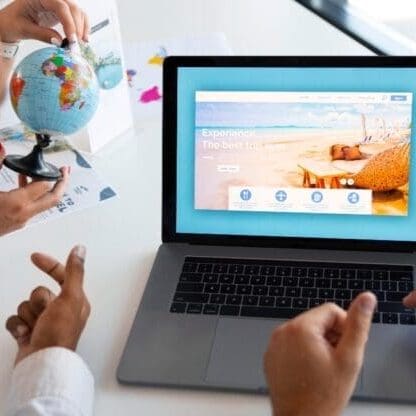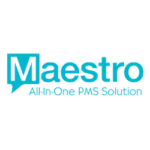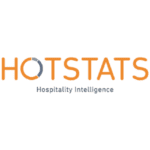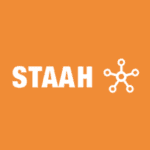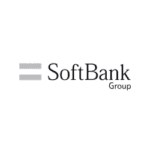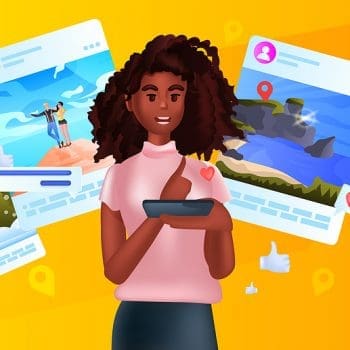 People are once again eager to travel. The Expedia Group Traveller Value Index: 2022 Outlook reveals that 91% of Australian travellers plan to take at least one holiday with family and friends in the next six months, and more than half of them (54%) say they plan to spend more on trips than they did before the pandemic.
People are once again eager to travel. The Expedia Group Traveller Value Index: 2022 Outlook reveals that 91% of Australian travellers plan to take at least one holiday with family and friends in the next six months, and more than half of them (54%) say they plan to spend more on trips than they did before the pandemic.
There has certainly been pent-up demand. When Australian officials announced the reopening of international borders, and quarantine free travel was once again allowed in and out of the country, we saw a 30% week on week increase in searches from international travellers to Australia.* Now with the further announcement that from 17 April, Australia no longer requires COVID-19 testing prior to travellers arrival, demand from international tourists is predicted to increase yet again.
Travellers are researching destinations, reading reviews, and dreaming about getting away. So how can hoteliers get their attention?
One thing is certain. They will need to do so digitally. Travellers are influenced by social media, shopping and booking on their smartphones more than ever. Reliance on digital devices has only accelerated during the pandemic, so travel businesses must be able to reach their potential travellers through engaging mobile content.
But for hoteliers, online marketing can be a minefield. So, which online and digital channels should you use? Here is a simple beginners’ guide to a range of online marketing channels you need to consider in your quest to attract the digital traveller in 2022.
But first thing’s first….
You need a plan. Don’t go scatter-gun into the world of online marketing. You must start with a good marketing strategy that is aligned with your business goals, identifies who your high-value guests are, and articulates why your property is the perfect place for their next holiday. It will give your marketing a clear purpose and drive results.
Your plan should also prioritise the best channels to reach your target guests and tailor content to what best works on each specific channel. And in the world of the digital traveller, many of these channels are in the digital realm. This is not to say, of course, that offline forms of marketing are obsolete. Many have a perfectly valid place in the marketing mix, and for hotels in certain locations or with particular target markets, may be essential.
Destination marketing organisations, for example, aim to encourage travel and tourism in their locations. So, advertising or partnering with them might be a smart move, particularly for hotels that are in a location which has a real ‘pull’ factor. Some hotels also make very effective use of public relations to raise their profile in traditional as well as digital media.
But for most hotels now, the larger portion of their marketing budgets will go on digital and online channels. Here are some of the most popular.
Your website
A hotel’s website is one of the cornerstones of hotel marketing. Along with Online Travel Agencies (OTAs), they are core to most distribution strategies, requiring little budget and being able to reach millions of travellers a month.
The major plus of your own website is that it gives you full control over how you tell your story, and it is the only online channel for direct bookings.
Some key things to remember when developing your website are that the site design and the booking engine must be mobile-friendly and has undergone immense testing to ensure that the user experience is navigated with ease. Creating additional revenue opportunities such as an upgrade or an add-on while you have active traveller attention. You should also invest in some search engine optimisation (SEO – see below) and ensure you have high-quality photos on your site. Featuring guest reviews, and ensuring that every review receives a prompt and satisfactory response is also a good idea to give would-be guests confidence.
Online Travel Agents (OTAs)
Millions of travellers’ shop and book travel on OTA websites every single day so they are a hugely valuable way of helping you reach many more guests than you would do otherwise. They have become a critical part of the distribution mix for hotels, responsible for around a third of all bookings in 2020, according to Skift.
OTAs also enable you to optimise your listing to match your target guests, and to use lots of high-quality photos to show off your property. Hoteliers often cite a desire to increase their proportion of direct bookings, but the reality is that even the world’s biggest hotel chains, with their vast marketing budgets, rely to a large degree on OTA partnerships to reduce their inventories of unbooked rooms and boost revenue, especially during off-peak periods. They are an essential marketing and distribution platform that most hoteliers will benefit from having as a core part of their marketing mix.
OTA marketing programmes and tools
Hoteliers can also tap into the market insights and tools that OTAs provide for targeting travellers, securing, and processing bookings, communicating with guests, and managing reviews. If you are a smaller operation with limited marketing resources, this can be a smart way of outsourcing the kind of digital marketing expertise and tools that can help you find guests more effectively, secure their business when they are looking at your profile, and give them a better online traveller experience. For example, if you want to incentivise bookings in a certain booking window, or specific length of stay, or boost your visibility as the booking window closes, OTAs can help you do this.
Social media marketing
Posting content to social media sites such as Instagram, where many travellers go to research travel destinations, can be a valuable additional tool to reach digital travellers, particularly those at the younger end of the spectrum. Many hotels take this very seriously, going out of their way to create ‘Instagram or Tik Tok worthy’ moments; researching and using destination hashtags to increase their visibility; and offering guests incentives, such as a free drink, if they tag the hotel in their posts.
The constant data analysis from social media giants means advice on adverts changes constantly. For instance, Tik Tok now recommends that content creators make personable interacting videos – such as dance videos in a holiday location a provider is trying to promote – as opposed to traditional advertisements. This is because around 63% of users click on adverts that look more like traditional videos, with the product on sale blended into the video.
Email marketing
Keeping in touch with previous guests and loyalty members via email is another tactic used by many hotels. Some publish regular newsletters and offer promotions or incentives to encourage re-booking. Hotels embarking on an email marketing campaign must ensure they abide by data protection rules, however, to avoid potential fines.
Search Engine Optimisation (SEO)
SEO is a valuable way of improving your discoverability and driving organic traffic to your website. It helps your website show up higher in search engines such as Google or Bing, which is important for attracting direct traffic, given that most web searchers don’t look beyond the first page of search results. The use of SEO effectively involves having a well-optimised website, by using targeted keywords in your website copy; producing useful and relevant content on your site; and getting backlinks to your site from trusted third-party websites. This will take specialist advice and support.
Content marketing
Content marketing is about creating content that is useful for your target guests and sharing it on the digital platforms they are most likely to visit. Content could include blog posts, case studies or infographics, which can be used on your website, social channels, or third-party platforms.
A fluctuating market
While the future of travel is once again looking much brighter, with people planning to travel more and increase their investment in trips, it will not be a smooth recovery and hoteliers may expect fluctuations in demand to continue. In this volatile environment, keeping your finger on the pulse of what is happening in the marketplace, and staying agile enough to adapt marketing strategies at short notice, will be of huge value.
One thing for certain is that it is the hotels with the most advanced digital marketing strategies that will do this most successfully.
1 Traveler Value Index: 2022 Outlook (link)
2 Expedia Group domestic Australian searches from March 7 to 13, 2022, with a week over week comparison, for travel dates from April 2 to 26, 2022.
About the author
Jamie Griego is the Director, Market Management, Australia for Expedia Group.







